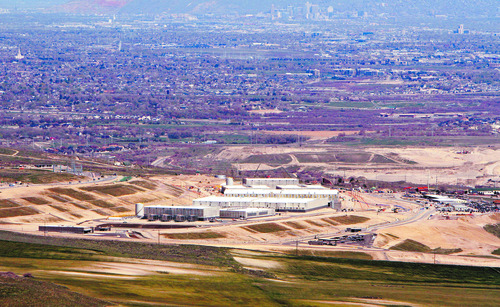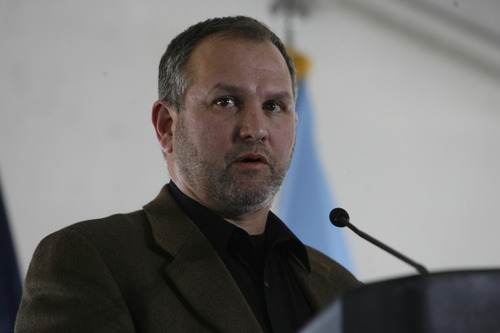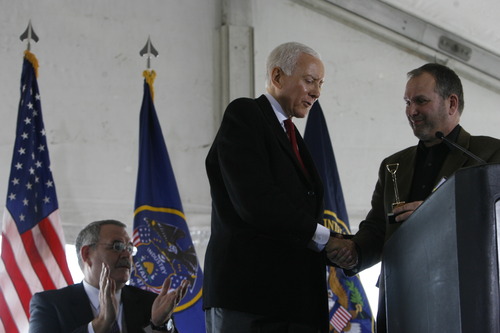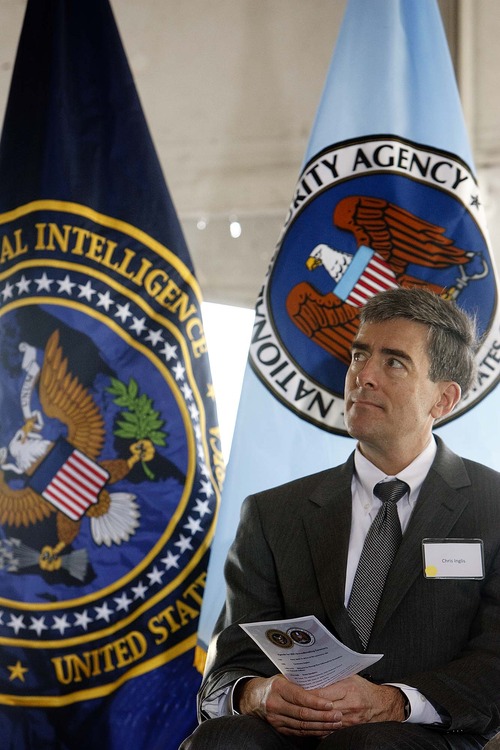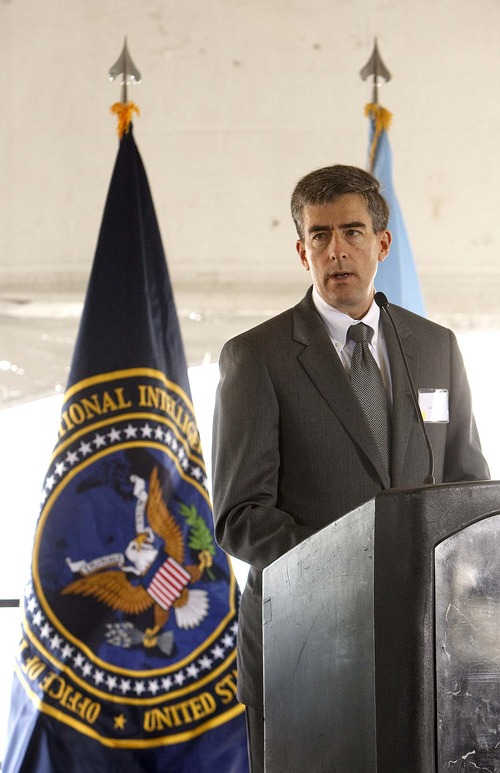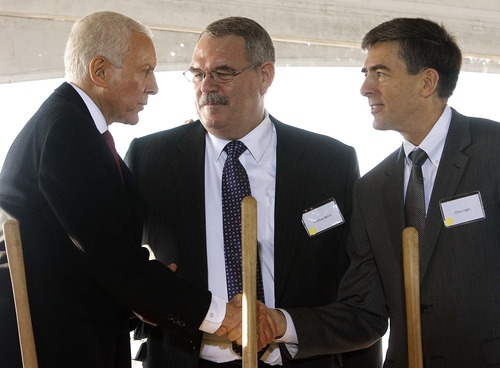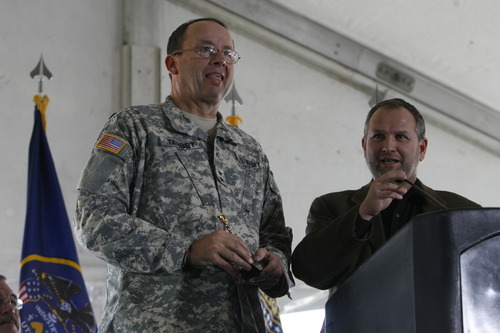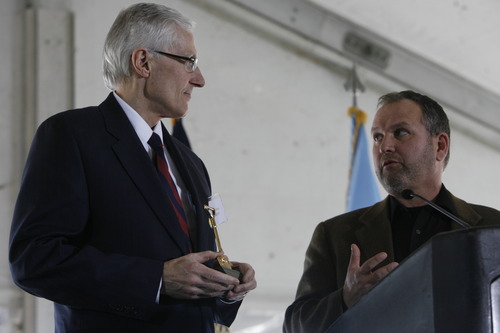This is an archived article that was published on sltrib.com in 2013, and information in the article may be outdated. It is provided only for personal research purposes and may not be reprinted.
Under a bill the 2013 Utah Legislature passed, the National Security Agency's new Bluffdale data center might be taxed on the millions of dollars of energy it is expected to consume, providing a potential windfall for an obscure state authority.
The NSA is protesting the possible tax, even though a Utah attorney said he informed the agency about HB325, and the top U.S. electronic spy agency voiced no opposition until an official emailed Gov. Gary Herbert's staff weeks after Herbert signed the measure.
"We are quite concerned [about] this," Harvey Davis, NSA director of installations and logistics, wrote in the April 26 email, obtained through a Utah open records law request.
In a follow-up email Davis sent 31 minutes later, he explained: "The long and short of it is: Long-term stability in the utility rates was a major factor in Utah being selected as our site for our $1.5 billion construction at Camp Williams. HB325 runs counter to what we expected."
HB325, which Herbert signed into law April 1, benefits the Utah Military Installation Development Authority (MIDA). It allows the entity, which was set up to put select military properties on the public tax rolls, to collect a tax of up to 6 percent on Rocky Mountain Power electricity used by the Utah Data Center.
While the NSA has offered no specifics about the Utah Data Center's operations, a 2012 Wired magazine article, citing former intelligence and NSA officials, said computers at the data center will collect electronic information — from emails to cellphone records to purchasing receipts — from all over the world, store it and look for threatening patterns. The article estimated the Utah Data Center would consume $40 million of electricity a year — a level of consumption at which the NSA would have to pay up to another $2.4 million annually to satisfy the tax HB325 could impose.
Even Beehive State officials who helped lure what's now called the Utah Data Center claim not to have known about HB325 and what it could cost the spy agency. Now-retired Utah National Guard Gen. Brian Tarbet said no one from the NSA or National Guard staff at Camp Williams, on whose grounds the Utah Data Center is located, was consulted about the measure before Herbert signed it.
"It came as a complete surprise to many of us," said Tarbet, who also is a lawyer and general counsel to Utah Attorney General John Swallow.
Davis' emails initiated discussions between the NSA and state officials. On Friday, MIDA representatives met in Herbert's office to discuss the possible tax the new law could impose. State Sen. Jerry Stevenson, a MIDA board member and the Senate sponsor of HB325, said Davis joined by telephone.
Stevenson, R-Layton, said the parties decided to continue talking and reach an agreement by September. He declined to specify the negotiating points.
The NSA declined to comment.
In a Wednesday interview, Stevenson acknowledged "there was definitely a lapse in communication" about the measure. He said it's possible MIDA will never apply the tax, or at least not at the 6 percent rate.
Rick Mayfield, MIDA's director, said the authority is budgeting for the next fiscal year and is not including the energy tax in its plans.
"It was done as a permissive tax," Mayfield said Tuesday. "So we can use it whenever."
The Legislature created MIDA in 2007. A federal law allows the Department of Defense to identify underutilized military property and lease it to private developers. The law requires that the leased land be subject to property taxes.
So in Utah, when a private developer wins a bid to lease and improve the military property, MIDA can take governing jurisdiction by creating a project area, much like a city annexing land. MIDA can install the utilities and impose certain taxes, as it did in the Falcon Hill Project, a 550-acre commercial development on the west side of Hill Air Force Base that opened last year. The revenue MIDA generates in taxes must be used to provide municipal services to the project area and to assist with development.
The federal government approached MIDA to help build the utilities for the Utah Data Center. MIDA created a project area and had the land annexed into Bluffdale. The NSA paid MIDA for all the utility construction.
Unlike with Falcon Hill, the MIDA Utah Data Center project area has no private-sector tenants to tax to support future MIDA projects for the NSA. So, with HB325, MIDA asked lawmakers for permission to tax up to 6 of the energy Rocky Mountain Power sells the Utah Data Center.
"We don't tax the federal government," Mayfield explained to a Utah Senate committee March 7. "So what this bill does is tax Rocky Mountain Power and then gives them the ability to pass that on as an increase in their energy bills. So we collect an equivalent of what would have been a tax on the federal government."
In the interview Tuesday, Mayfield said one potential MIDA project would be development of wind, solar or geothermal power sources on U.S. Army or Air Force property in Utah's West Desert.
Like any government agency, Mayfield said, MIDA worries about how taxes will affect its constituents, in this case, the Utah Data Center.
"You don't want to gouge people just [because you have] a law," Mayfield said. "You've got to have some reason for [collecting] the money."
Twitter: @natecarlisle —
Ribbon-cutting schedule
Invitations have been sent to a select group of Utah politicians and dignitaries inviting them to the Utah Data Center ribbon cutting on May 30. The invitation says the event is unclassified and reporters will be there, but an NSA spokeswoman this week declined to discuss the festivities or say whether the event means the facility will be starting operations. The NSA has previously said the Utah Data Center would be online this fall.


